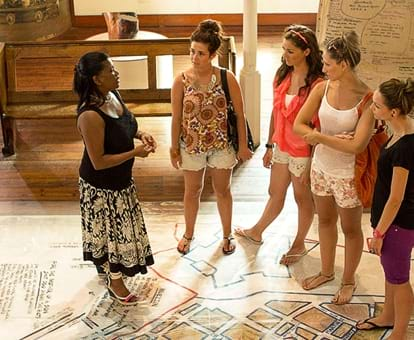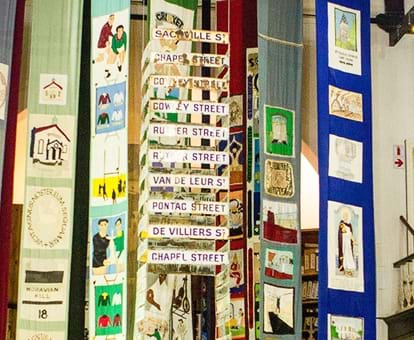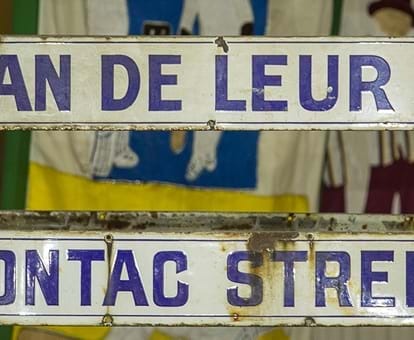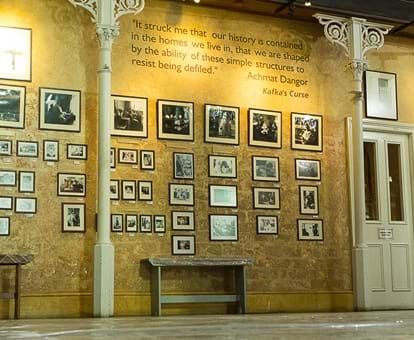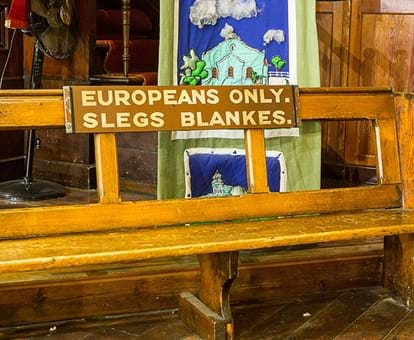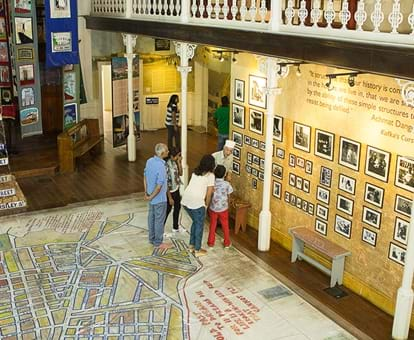By creating an account, I agree to the
Terms of service and Privacy policy
Choose your country and language:
Africa
Americas
Asia Pacific
Europe
TThe District Six Museum in the old Methodist Mission Church recalls the life of this once-vibrant, racially mixed suburb and its destruction under apartheid. This museum in Cape Town seeks to reconnect with the spirit of the community and provide a different interpretation of the past. There are many places in Cape Town where you can capture the spirit of a bygone era, but the District Six Museum is where you will find the heart and soul of a broken community.
Housed in adjoining buildings in Buitenkant Street, in the inner city, the museum started out as a place for former residents to meet and discuss grievances, as well as resolve how best to get back to the piece of land they once called home. By 1994, this meeting place, the Methodist Church, had evolved into the District Six Museum. More recently, the museum expanded into the adjoining Sacks Futeran building.
The museum will transport you back in time, especially when reading the 300m-long memory cloth. It captures thousands of first-hand accounts of what life was like in District Six, the sadness of forced removals and the subsequent devastation of a community's wellbeing.
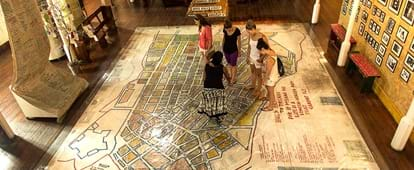
DDistrict Six was established in 1867, one of six districts in Cape Town. The area, on the outskirts of the inner city was vibrant, colourful and crowded. District Six was a vibrant centre with close links to the city and the port. By the beginning of the 20th century, however, the process of removals and marginalisation had begun.
District Six Museum, Cape Town
DDistrict Six was established in 1867, one of six districts in Cape Town. The area, on the outskirts of the inner city was vibrant, colourful and crowded. District Six was a vibrant centre with close links to the city and the port. By the beginning of the 20th century, however, the process of removals and marginalisation had begun.
People of all colours – residents, immigrants, artisans and merchants – owned and rented houses. They lived in harmony and were close to their places of work, school, worship and entertainment.
In 1901 all the black people were forced to move out, and as the decades passed by it became a predominantly coloured community.
DDistrict Six was a crowded place. More than 60 000 people lived there, but it was a happy place, until 1966 when the apartheid government declared it a white area under the Group Areas Act. Bulldozers moved in, and people watched in sadness and disbelief as their homes and belongings were destroyed. In a further act of humiliation and dehumanisation, people and their belongings were transported in open trucks to their new homes. A very sad part of South African history indeed.
By 1982 District Six was a barren strip of land, and so it remained for many years. So it is here, in the museum, where people can come and remember their history. It is a place of solace, a place to meet forgotten friends and, for some, a place of healing.
The museum is not only filled with personal memoirs and mementos, but also with poignant photographs, which tell both stories: one of a happier time, a bygone era, and the second one, the brutality of the apartheid state and how a once-proud community was destroyed.
Related articles

